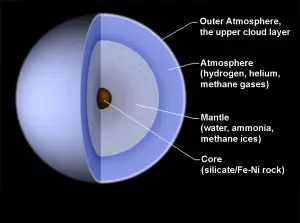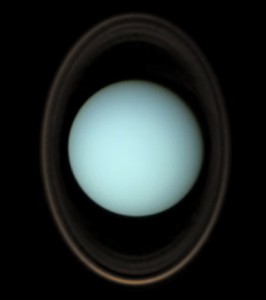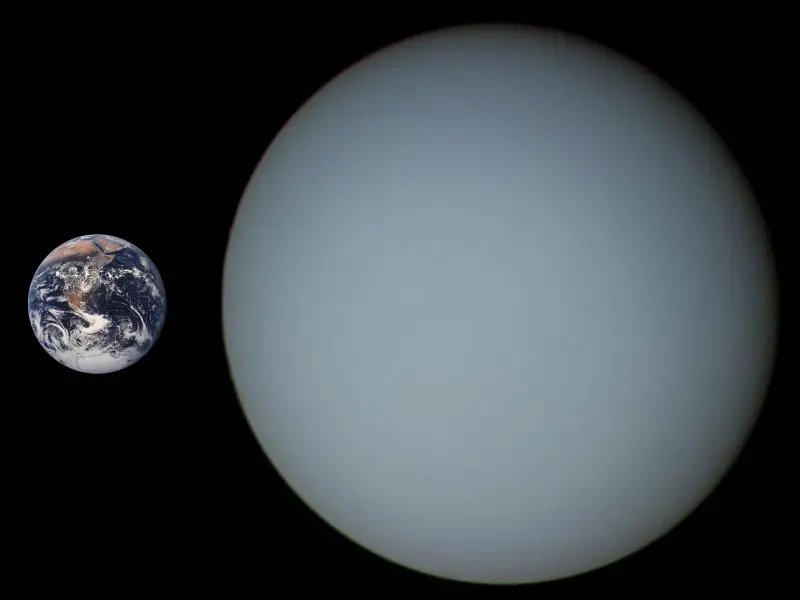Fun Uranus Facts For Kids
Amazing Facts About Uranus For Kids
Space, my absolute favorite topic! Today we are going to talk about one of the less discussed planets. These Uranus facts for kids will hopefully intrigue you and inspire you to earn more. These amazing facts about Uranus for kids should provide you with some amazing insight on the planets that surround us. Uranus is truly an interesting plane, and is very unlike any of the others in our solar system. So buckle up, let’s take a ride to deep space and learn some fun Uranus facts for kids!
The 7th planet from our sun is Uranus. We can’t see it with the naked eye and it was the first planet that was discovered with a telescope. People will often describe it as rolling around the Sun on it’s side. This is because with an axial tilt of 98 degrees it’s always on it’s side.
It’s an incredible planet and I’m super excited bring you facts about it today. I’m actually quite happy that you have shown interest in the universe. It’s an amazing and wondrous place and we should always try to learn as much as we can about it.
Let’s get down to business! Here are some amazing Uranus facts!
Uranus For Kids
Amazing Uranus Information For Kids
Check out these quick facts about Uranus for kids. I know these are not the most interesting, but they are important to know. Once we get done here, we can move on to the more fun and amazing Uranus facts for kids.

Here is a great photo that shows the theoretical different layers of Uranus.
Amazing Uranus Facts For Kids
Interesting Facts About Uranus
This is the part I think you have been waiting for. Here are some of the most amazing and fun Uranus facts you will find. Space never fails to completely amaze me, but Uranus is a pretty special planet. Mainly because we know so little about it, it’s very mysterious. Let’s get down to business and take a look at some really cool Uranus facts for kids!
♦ It’s thought that Uranus sits on it’s side because of a large collision early in it’s development.
♦ The first planet discovered by a telescope was Uranus.

Here is a photo of Uranus with it’s allusive rings. They can’t be seen without special equipment.
♦ It takes about 42 Earth years for Uranus to make one complete rotation around the sun. This means that it’s each of it’s poles spend 42 years on the sun then the next 42 years in the dark.
♦ The blue haze appearance that Uranus gives off is not it’s surface. It’s atmosphere is mostly made up of Hydrogen but also has some methane. The way it works is methane absorbs red light and scatters blue light across the planet.
♦ The theory of Uranus is that under it’s hydrogen and methane exterior there is an ocean of water, ammonia and methane that is thousands of miles deep wrapped round a rocky core.
♦ Uranus is the coldest planet in our solar system, which is weird because it’s not the furthest from the sun. Uranus is about 2.88 billion km from the sun but Neptune is about 4.5 billion km which is almost twice as far. The strange thing is that Uranus is much colder. For some reason we can’t explain yet, Uranus gives off less heat than it takes in. We know that the other large planets have very hot cores, but something happened to Uranus that made it’s core cool down.
♦ In 1781 Uranus was discovered by William Herschel who was doing a survey of the sky using a telescope. After his discovery George III appointed William Herschel as the Astronomer Royal.
♦ Uranus is named after an ancient Greek supreme God. The first actually, he was the son and mate of Gaia and was father to Cronus (Saturn). These were the Gods before the Olympian gods you hear about now.
♦ We have never been able to visit Uranus in person, but the Voyager 2 spacecraft has made its way out there. It was visited by voyager on Jan 24th, 1986.
♦ Uranus does have rings, despite not being able to see them. You need special scientific tools to be able to see them. The rings are made up of ice and small rock particles.
Video About Uranus For Kids
Here Is A Uranus Facts For Kids Video
Uranus Size Comparison To Earch
See How Big Uranus Is Next To Earth
Uranus is a pretty large planet although it’s the 2nd least dense planet in our solar system. So even though it’s larger, it’s made up of gases and liquid mostly making it a lot lighter per mass than most planets. I wanted to give you a quick visual to you can see how big Uranus is when standing next to Earth. Uranus is about 14 times larger in total area, and is a very large planet. Check out the photo below to see how little Earth looks next to it.

Here is a great model that shows how big Earth is when right next to Uranus. Great for scale.
Fun Uranus Facts For Kids
Facts About Uranus For Kids Conclusion
Space is such a wild and wondrous frontier. It’s hard not to get excited and start to be curious about what could be out there. We have searched such a small corner of the known universe, it’s truly exciting to think about what else could be floating around out there. Uranus just happens to be one of our closer neighbors in the big scope of things. It’s important for us to know and understand how the planets around us work. Someday we may need to inhabit another planet (not any time soon) but it will be important for us to know and understand which one will work best.
Thank you so much for visiting our site today and showing some interest in the amazing planet Uranus. I hope that these Uranus facts for kids have given you what you needed and the answers you were searching for. Scientists are making new discoveries about space and Uranus every day. Keep searching and always stay curious.
We have some other amazing articles for you to check out. One of which is an article about the Top 20 most amazing creatures you never knew existed. Click that link to check it out! Also, check out some of our other space related pages below. You can find out about the moon and Neptune! Have an awesome day!
Saturn Facts For Kids
Moon Facts For Kids
More Great Space Facts For Kids
Uranus Facts For Kids





